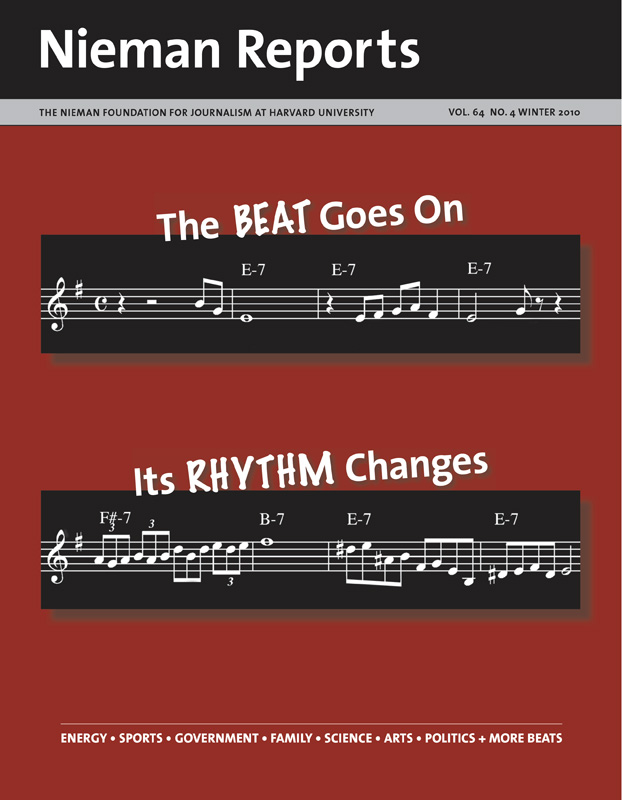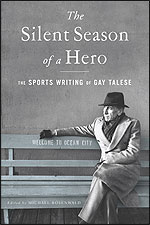Early in October Gay Talese came to the Boston Athenaeum to celebrate publication of “The Silent Season of a Hero: The Sports Writing of Gay Talese.” In this collection of his stories, his words span nearly five decades—beginning in 1948 with glimpses at “short shots” he penned as a teenager for his hometown newspaper, the Ocean City Sentinel-Ledger, and ending in 1996, when he wrote for Esquire about a visit that Muhammad Ali, by then rendered nearly speechless by Parkinson’s, had with Fidel Castro in Cuba.
Talese spoke about what attracted him to sports writing and his thoughts about doing the job today. Melissa Ludtke reports on what he said:
Writing about sports, Talese observed, is “understanding human nature in the raw.” As a 23-year-old junior reporter assigned to the sports beat at The New York Times, he was drawn toward athletes during their “moments of despair and failure.” He sees sports as being “a metaphor for life.” In the athlete who returns from “being a has-been” resides the struggle of human perseverance; in the star athlete’s slide into oblivion, he finds an opportunity to explore a performer’s perishability. “Forgotten is the one who once heard cheering,” he said of these fading athletes.
Sports writing, Talese told the audience, gives those who do the job “the capacity to observe emotion.” It’s why he calls the job “a dream occupation.”
Now 78 years old, he recently went to some football games with New York Times sportswriter Greg Bishop and observed a new generation of sportswriters at work. Seeing women reporters in the locker room was the biggest reminder of how much sports writing had changed. “I thought to myself that these men should be allowed sometimes to be alone, to be dressed,” he said.
Some things don’t change, however. One is Talese’s intractable belief that the best stories come from hanging out—from being with athletes and around the game. Acknowledging his lack of familiarity with digital media—no cell phone and on e-mail for the first time this summer—Talese didn’t hesitate when someone asked him to comment on technology’s impact on the Fourth Estate.
Reporters are behind laptops too much, he replied. Nor do they “get anything they didn’t ask for” since the digital inquiry is “linear” and thereby “limiting.” By just hanging around with athletes “in their environment” he stumbled by accident on important details. “By moving around. Seeing. Observing. Sometimes being surprised,” is how he described his method. “Sometimes I think reporters should waste some time,” he said, referring to times when they might consider the value to be found in disconnecting from technology. “Good journalism is wasting time.”



